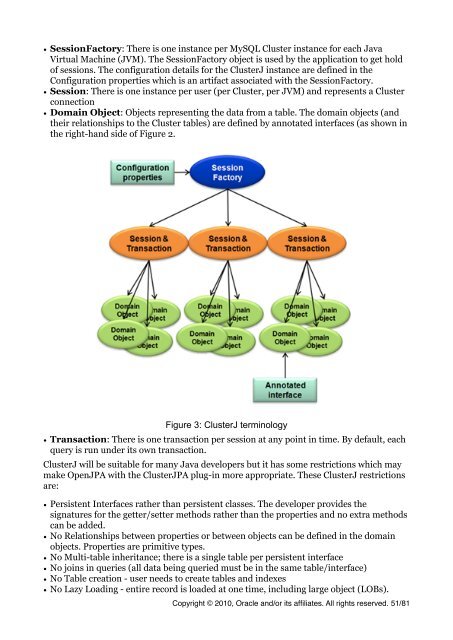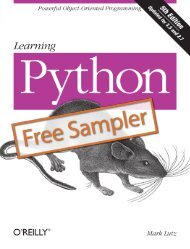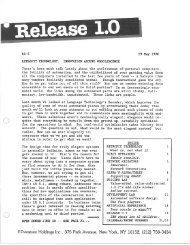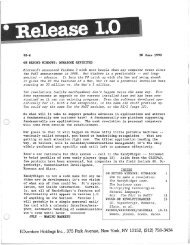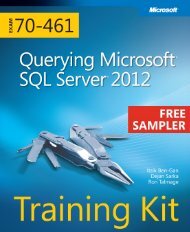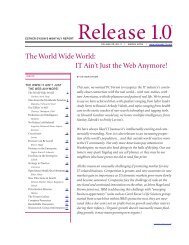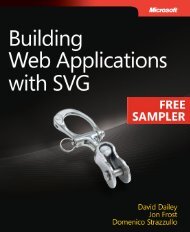MySQL Cluster Tutorial - cdn.oreillystatic.com
MySQL Cluster Tutorial - cdn.oreillystatic.com
MySQL Cluster Tutorial - cdn.oreillystatic.com
Create successful ePaper yourself
Turn your PDF publications into a flip-book with our unique Google optimized e-Paper software.
• SessionFactory: There is one instance per <strong>MySQL</strong> <strong>Cluster</strong> instance for each Java<br />
Virtual Machine (JVM). The SessionFactory object is used by the application to get hold<br />
of sessions. The configuration details for the <strong>Cluster</strong>J instance are defined in the<br />
Configuration properties which is an artifact associated with the SessionFactory.<br />
• Session: There is one instance per user (per <strong>Cluster</strong>, per JVM) and represents a <strong>Cluster</strong><br />
connection<br />
• Domain Object: Objects representing the data from a table. The domain objects (and<br />
their relationships to the <strong>Cluster</strong> tables) are defined by annotated interfaces (as shown in<br />
the right-hand side of Figure 2.<br />
Figure 3: <strong>Cluster</strong>J terminology<br />
• Transaction: There is one transaction per session at any point in time. By default, each<br />
query is run under its own transaction.<br />
<strong>Cluster</strong>J will be suitable for many Java developers but it has some restrictions which may<br />
make OpenJPA with the <strong>Cluster</strong>JPA plug-in more appropriate. These <strong>Cluster</strong>J restrictions<br />
are:<br />
• Persistent Interfaces rather than persistent classes. The developer provides the<br />
signatures for the getter/setter methods rather than the properties and no extra methods<br />
can be added.<br />
• No Relationships between properties or between objects can be defined in the domain<br />
objects. Properties are primitive types.<br />
• No Multi-table inheritance; there is a single table per persistent interface<br />
• No joins in queries (all data being queried must be in the same table/interface)<br />
• No Table creation - user needs to create tables and indexes<br />
• No Lazy Loading - entire record is loaded at one time, including large object (LOBs).<br />
Copyright © 2010, Oracle and/or its affiliates. All rights reserved. 51/81


